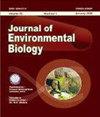Appraisal of biomedical waste management practice in India and associated human health and environmental risk
IF 0.7
Q4 ENVIRONMENTAL SCIENCES
引用次数: 0
Abstract
Biomedical waste management is an essential aspect of human and environmental safety. The healthcare industries and the unfortunate pandemic have increased the generation of biomedical waste. If biomedical waste is not managed safely, it poses human health and ecological risks. Hence, the study aims to appraise the scenario of biomedical waste management in India and to identify its effect on human health and the environment. The study used a systematic approach to review all the rules and regulations related to biomedical waste management issued by the Government of India from time to time. Further, the study explored the strengths and weaknesses of the current BMW management rules using the SWOT analysis model. All recent and relevant literature was critically examined using scoping review approaches to better understand the health and environmental risks associated with poor biomedical waste management to propose the best practices and future direction. It was found that needle stick injury is a major hazard to human health during segregation. Poor segregation practices can lead to the mixing of biomedical waste with municipal solid waste. Hence, there is a need for proper training about the current biomedical waste rules with a specific focus on biomedical waste segregation at the time of generation. Each process involved in biomedical waste management can adversely impact the environment and human health if not managed well. The impact and gaps of poor biomedical waste management from generation to disposal have been identified. The study recommends routine awareness programs and capacity building for proper biomedical waste management and to minimize the associated environmental and human health risks. These risks could be minimized further through implementing scientific and systematic approaches in biomedical waste treatment and management, including regulatory compliance.评估印度的生物医学废物管理做法以及相关的人类健康和环境风险
生物医学废物管理是人类和环境安全的一个重要方面。医疗保健行业和不幸的疫情增加了生物医学废物的产生。如果不安全地管理生物医学废物,就会对人类健康和生态造成风险。因此,该研究旨在评估印度的生物医学废物管理情况,并确定其对人类健康和环境的影响。该研究采用系统的方法审查了印度政府不时发布的与生物医学废物管理有关的所有规则和条例。此外,本研究采用SWOT分析模型探讨了宝马现行管理规则的优势和劣势。使用范围界定审查方法对所有最近的相关文献进行了严格审查,以更好地了解与生物医学废物管理不善相关的健康和环境风险,从而提出最佳实践和未来方向。研究发现,在隔离期间,针刺伤害是对人体健康的重大危害。不良的隔离做法可能导致生物医学废物与城市固体废物混合。因此,有必要对当前的生物医学废物规则进行适当的培训,特别是在产生时对生物医学废物进行隔离。如果管理不善,生物医学废物管理中涉及的每一个过程都可能对环境和人类健康产生不利影响。已经查明了从产生到处置的生物医学废物管理不善的影响和差距。该研究建议开展常规意识计划和能力建设,以正确管理生物医学废物,并将相关的环境和人类健康风险降至最低。可以通过在生物医学废物处理和管理方面实施科学和系统的方法,包括遵守法规,进一步将这些风险降至最低。
本文章由计算机程序翻译,如有差异,请以英文原文为准。
求助全文
约1分钟内获得全文
求助全文
来源期刊

Journal of environmental biology
ENVIRONMENTAL SCIENCES-
CiteScore
1.70
自引率
0.00%
发文量
92
审稿时长
3 months
期刊介绍:
Information not localized
 求助内容:
求助内容: 应助结果提醒方式:
应助结果提醒方式:


